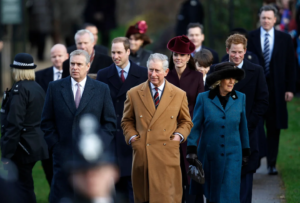In a pivotal move toward ending the ongoing conflict in Ukraine, Britain, France, and Ukraine have committed to formulating a comprehensive ceasefire proposal, aiming to present it to the United States. British Prime Minister Keir Starmer confirmed this strategic development on Sunday as he prepared to host a high-stakes European summit in London to address the war and chart a path toward lasting peace.
A Critical Moment in Diplomatic Relations
The London summit arrives at a delicate moment, overshadowed by U.S. President Donald Trump’s controversial rebuke of Ukrainian President Volodymyr Zelenskyy at the White House last Friday. Trump’s remarks, questioning Ukraine’s gratitude for American military aid, have heightened concerns over the reliability of U.S. support for Ukraine’s sovereignty.
However, Starmer emphasized his commitment to diplomatic engagement rather than escalating tensions. He positioned the summit as an opportunity to reconnect with both Trump and Zelenskyy, alongside French President Emmanuel Macron, to reinvigorate peace efforts.
“The United Kingdom, in collaboration with France and potentially other allies, is working closely with Ukraine to develop a roadmap for de-escalation. Once finalized, this plan will be presented to the United States,” Starmer revealed in an exclusive interview with the BBC.
London Summit: Strengthening Europe’s Resolve
The summit in London is poised to play a critical role in stabilizing Ukraine and reinforcing European defense capabilities. Key discussions will revolve around the formation of a European-led military coalition to enforce a ceasefire, ensuring that any peace agreement is upheld.
Starmer acknowledged the need for unwavering vigilance: “We cannot afford a temporary truce that allows Russian President Vladimir Putin to regroup and launch another offensive. A credible ceasefire must be backed by a formidable defense strategy.”
A Strategic European Alliance to Bolster Ukraine
As uncertainty looms over U.S. foreign policy commitments, European nations are stepping up their support for Ukraine. France, Germany, Denmark, Italy, the Netherlands, Norway, Poland, Spain, Canada, Finland, Sweden, the Czech Republic, and Romania will all participate in the summit. Also attending will be NATO’s Secretary-General, the Turkish foreign minister, and senior EU officials.
Zelenskyy, who received an outpouring of support from European leaders following his strained encounter with Trump, has been actively engaged in diplomatic talks. Upon his arrival in London, he was warmly embraced by Starmer, who reaffirmed Britain’s unwavering support: “The United Kingdom stands with Ukraine—no matter how long the battle takes.”
Tensions Over Trump’s Stance on Ukraine
Europe is grappling with the shifting dynamics of U.S. policy, especially following Trump’s direct engagement with Putin—an unprecedented move that has raised alarms across NATO. The former U.S. president’s characterization of Zelenskyy as a “dictator” and his false assertion that Ukraine instigated the war have further complicated diplomatic relations.
Despite earlier optimism following Macron and Starmer’s visits to Washington, tensions escalated after U.S. Vice President JD Vance harshly criticized Zelenskyy for questioning Putin’s trustworthiness. This unexpected shift has intensified Europe’s urgency to assert greater leadership in the conflict resolution process.
Europe’s Financial and Military Commitment to Ukraine

Recognizing the gravity of the situation, European leaders are pledging to ramp up military aid and financial support for Ukraine. There is growing momentum to unlock €200 billion ($207 billion) in seized Russian assets to fund defense efforts.
Rachel Ellehuus, Director-General of the Royal United Services Institute, emphasized Europe’s evolving role: “Starmer has demonstrated Europe’s capacity to lead in securing Ukraine’s future. However, Friday’s White House developments underscore the urgent need for a stronger, independent European security framework.”
Increased Military Spending to Fortify European Defense
In light of shifting global alliances, Starmer has committed to boosting Britain’s defense spending to 2.5% of GDP by 2027. Other European leaders are expected to follow suit, with Czech Prime Minister Petr Fiala advocating for an increase to at least 3% of GDP.
“If we don’t act swiftly and decisively, we risk allowing aggression to dictate the future of our continent,” Fiala warned.
Macron echoed similar sentiments, acknowledging the need for Europe to take greater responsibility for its security. “We must build a sovereign, united, and independent Europe. It is long overdue.”
A Defining Moment for Europe’s Leadership
As uncertainty looms over Washington’s commitment, the London summit marks a defining moment in Europe’s approach to the Ukraine conflict. With discussions centered on diplomatic strategies, military reinforcement, and financial backing, European leaders are signaling their readiness to lead the charge for peace and stability.
This landmark gathering could reshape the future of European security and determine Ukraine’s trajectory in its battle for sovereignty. The coming days will test Europe’s ability to unite in the face of geopolitical adversity—and to forge a sustainable path to peace in Ukraine.




